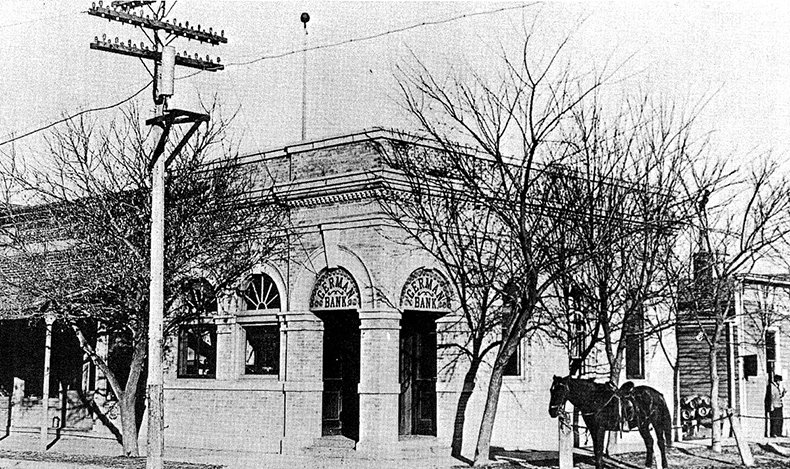In 1887, the railroad route between Fairmont and Chester was staked out, and four individuals, Frank Bruning, Friedrich Bruning, Heinrichs Voss, and John Carroll, donated twenty acres for a new town site on that route.
The town was named Bruning in honor of the five Bruning brothers who helped establish it – Herman, Gerhardt, Friedrich, Wilhelm, and Frank. These five brothers and their families had emigrated from Germany and briefly lived in Illinois before settling in Thayer County.
Two of the five brothers, Frank and Friedrich, then played a role in founding what is now Bruning State Bank.The bank began in 1891 as the German Bank of Bruning. It changed names in 1918, survived the difficult 1920s and 30s, moved locations within Bruning several times, and has now added branch locations in Hebron, Broken Bow, and Holdrege. Like other multi-generation businesses and farms in the Bruning area, many of the bank’s current shareholders are fourth and fifth generation descendants of early stockholders.
Other notable moments in the history of Bruning…
- The Bruning Opera House was built in 1907 by Herman Bruning and is still used for many community events.
- Bruning was home to a stable that raised locally bred racehorses to race at Ak-Sar-Ben and other tracks, including some in Kentucky.
- The Bruning Army Air Base was one of eleven training airfields for the U.S. Air Force during World War II, and the area is now a commercial cattle feedyard.
- The first free flight of a modern propane-fueled hot air balloon took place east of Bruning in 1960.
Through the years, Bruning family members have been strong supporters of not only agriculture and banking, but also community involvement in general. The town of Bruning is investing in its future to attract and retain the younger generations. A new medical clinic, library, fitness center, and fire hall are recent or planned projects of the Bruning Community Foundation. A favorite Bruning family quote guides their business philosophy and their philanthropy: “This Bank and Community are ours to use and grow, but it is our duty to leave them in better shape for the next generation.”


